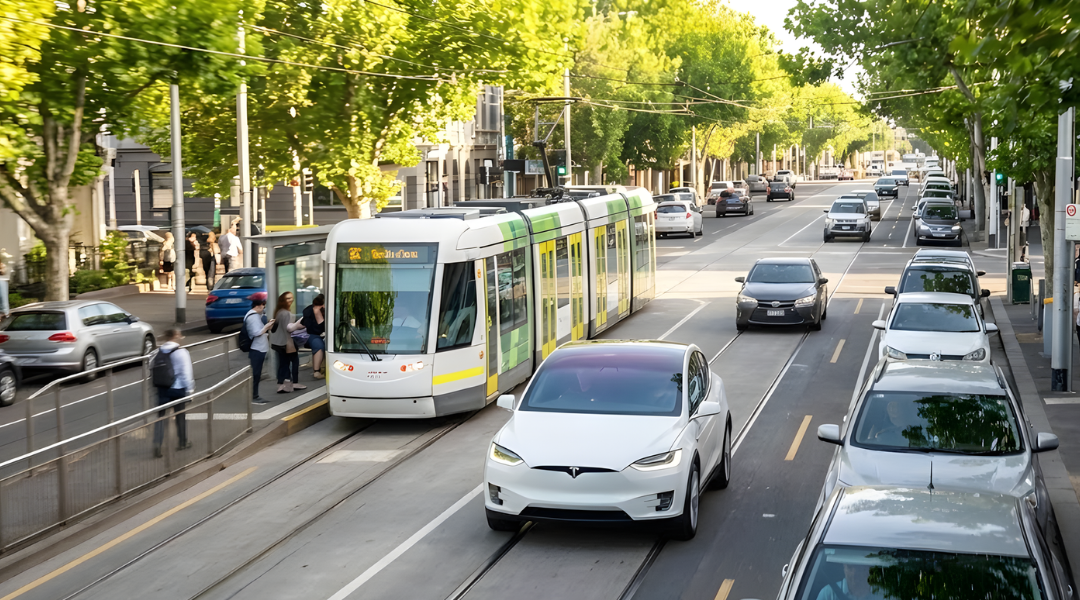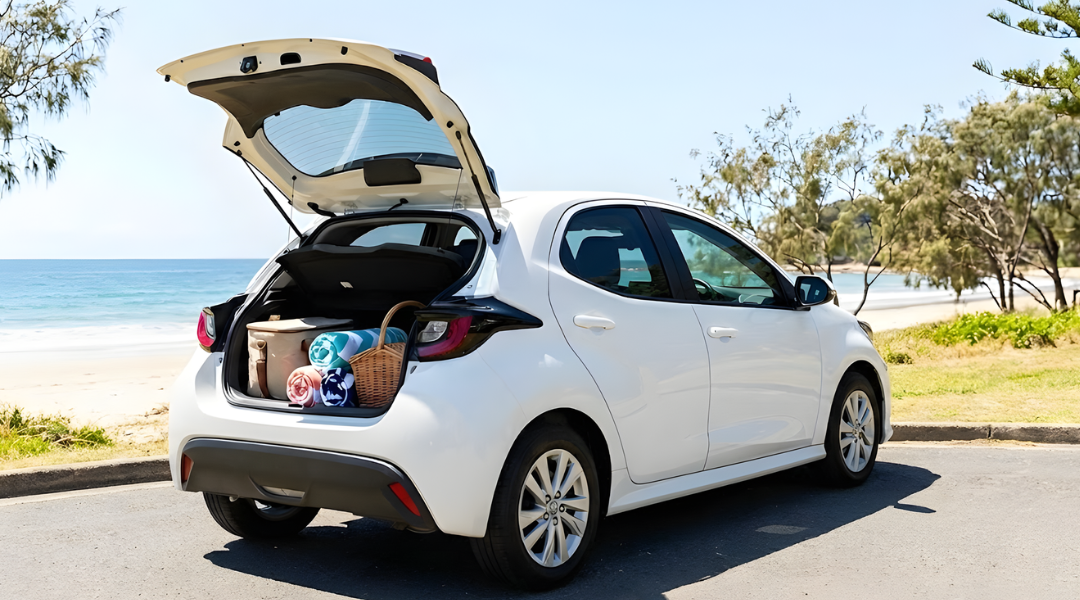Climate change, driven primarily by human activities, is altering our planet’s climate system. This global phenomenon is leading to a variety of impacts that can significantly affect your road trip experiences.
The Basics of Climate Change
- Greenhouse Gas Emissions: Human activities, such as burning fossil fuels, release greenhouse gases into the atmosphere, trapping heat and causing global temperatures to rise.
- Global Warming: The increase in greenhouse gases leads to a warming planet, with far-reaching consequences.
Rising Temperatures and Extreme Weather Events
- Heatwaves: More frequent and intense heatwaves can make outdoor activities uncomfortable and dangerous.
- Wildfires: Climate change can exacerbate wildfire risks, leading to air quality issues and potential road closures.
- Heavy Rainfall and Flooding: Increased rainfall can lead to flooding, damaging roads and infrastructure.
Sea Level Rise and Coastal Erosion
- Coastal Erosion: Rising sea levels can erode coastlines, impacting popular beach destinations and coastal roads.
- Coastal Flooding: Coastal cities and towns may experience increased flooding, especially during storms and high tides.
Popular Road Trip Destinations at Risk
Coastal Cities and Regions
- Miami, Florida: This coastal city is vulnerable to sea-level rise and hurricanes.
- Venice, Italy: A city built on water, Venice is threatened by rising sea levels and increased flooding.
- Sydney, Australia: A popular tourist destination, Sydney’s coastal areas are at risk from sea-level rise and more intense storms.
Mountainous Areas
- The Alps: Climate change is affecting the snowpack in the Alps, impacting winter sports and local economies.
- Rocky Mountains: Warming temperatures and changing precipitation patterns can alter the landscape and impact wildlife.
Desert Landscapes
- The American Southwest: Higher temperatures and reduced rainfall can lead to increased drought and desertification.
- The Sahara Desert: Climate change may expand the Sahara Desert, impacting surrounding regions.
How Climate Change Affects Road Trips
Climate change is significantly impacting road trip experiences worldwide. Here are some of the ways:
Disrupted Travel Plans
- Extreme Weather Events: Unexpected storms, floods, and heatwaves can disrupt travel plans, leading to delays, cancellations, and rerouted itineraries.
- Seasonal Shifts: Changes in seasonal weather patterns can affect the timing of road trips. For instance, earlier snowmelt in mountainous regions may reduce winter sports opportunities.
Road Closures and Detours
- Infrastructure Damage: Extreme weather events, such as hurricanes, tornadoes, and wildfires, can damage roads, bridges, and other infrastructure, leading to road closures and detours.
- Landslides and Rockfalls: Heavy rainfall and unstable slopes can cause landslides and rockfalls, blocking roads and creating hazardous conditions.
Increased Risk of Wildfires
- Drier Conditions: Climate change can lead to drier conditions, increasing the risk of wildfires. These fires can cause road closures, poor air quality, and damage to natural landscapes.
- Evacuation Routes: Wildfires can impact evacuation routes, forcing travellers to alter their plans or even cancel their trips.
Water Shortages and Drought
- Reduced Water Availability: Climate change can lead to water shortages, affecting water supplies for towns, cities, and national parks.
- Limited Campground Facilities: Water shortages may impact the availability of water at campgrounds, limiting camping options.
Sustainable Travel Practices
Reduce, Reuse, Recycle
- Pack Mindfully: Pack light and choose reusable items like water bottles and shopping bags.
- Minimize Waste: Avoid single-use plastics and dispose of waste responsibly.
- Recycle: Recycle whenever possible, especially on long road trips.
Choose Eco-Friendly Accommodations
- Eco-Certified Hotels: Look for hotels and accommodations with eco-certifications, such as LEED or Green Key.
- Support Local Businesses: Choose locally-owned businesses that prioritize sustainability and ethical practices.
Support Local Businesses
- Eat Local: Support local farmers and producers by choosing locally sourced food.
- Shop Local: Purchase souvenirs and products from local artisans and businesses.
Minimize Your Carbon Footprint
- Carpooling and Public Transportation: Share rides with others or use public transportation to reduce emissions.
- Eco-Friendly Vehicles: Consider renting hybrid or electric vehicles, if available.
- Offset Your Carbon Footprint: Use carbon offset programs to compensate for your travel emissions.
By adopting these sustainable travel practices, you can help minimize your impact on the environment and contribute to a more sustainable future.
Sustainable Destinations
- Costa Rica: Known for its commitment to ecotourism, Costa Rica offers a variety of sustainable activities, from rainforest adventures to beach relaxation.
- Iceland: A land of stunning natural beauty, Iceland is committed to sustainable tourism and renewable energy.
- New Zealand: With its stunning landscapes and emphasis on sustainability, New Zealand is a great choice for eco-conscious travellers.
Sustainable Transportation
- Train Travel: Opt for train travel whenever possible, as it often has a lower carbon footprint than air travel or car travel.
- Cycling and Walking: Explore cities and towns on foot or by bike to reduce your carbon emissions.
- Electric Vehicles: Consider renting an electric vehicle for your road trip to minimize your environmental impact.
Responsible Tourism
- Support Local Communities: Choose accommodations and activities that benefit local communities.
- Respect Wildlife and Nature: Adhere to guidelines and regulations to protect wildlife and natural habitats.
- Minimize Your Impact: Avoid littering, minimize water usage, and conserve energy.
Planning Climate-Conscious Road Trips
As climate change continues to shape our planet, it’s essential to consider its impact when planning road trips. Here are some tips to ensure a sustainable and responsible travel experience:
Researching Weather Patterns
- Check Weather Forecasts: Stay updated on weather forecasts and be prepared for potential changes, such as extreme heat waves, heavy rainfall, or wildfires.
- Consider Alternative Routes: If your original route is affected by adverse weather conditions, be ready to explore alternative routes.
Checking Road Conditions
- Monitor Road Closure Alerts: Keep an eye on real-time traffic updates and road closure alerts.
- Plan Alternate Routes: Have backup plans in case of road closures or detours.
- Check with Local Authorities: Contact local authorities or visitocentresrs for the latest information on road conditions and potential hazards.
Packing for Changing Conditions
- Versatile Clothing: Pack layers that can be easily adjusted to changing weather conditions.
- Emergency Kit: Have an emergency kit with essential items like water, snacks, a first-aid kit, and warm clothing.
- Sun Protection: Protect yourself from the sun with sunscreen, a hat, and sunglasses.
Supporting Conservation Efforts
- Choose Sustainable Accommodations: Opt for eco-friendly accommodations that prioritize sustainability practices.
- Minimize Waste: Reduce waste by packing reusable items and minimizing single-use plastics.
- Support Local Businesses: Choose local businesses and restaurants to boost the local economy.
- Donate to Conservation Organizations: Contribute to organizations working to protect the environment.
Future of Road Trips in a Changing Climate
As climate change continues to impact our planet, it’s crucial to adapt our travel plans and practices. Here are some trends to watch out for:
- Electric Vehicles: The increasing availability of electric vehicles will reduce carbon emissions from road trips.
- Smart Travel Apps: Advanced technology will provide real-time updates on road conditions, weather forecasts, and sustainable travel options.
- Eco-Friendly Accommodations: More eco-friendly hotels and campsites will emerge, offering sustainable amenities and practices.
- Climate-Conscious Tourism: Travelers will increasingly seek out sustainable travel experiences and support eco-friendly businesses.
By being mindful of our environmental impact and making conscious choices, we can continue to enjoy the beauty of our planet while minimizing our contribution to climate change.
Climate Change in Australia: A Growing Concern
Australia is experiencing the significant impacts of climate change, with rising temperatures, more extreme weather events, and altered rainfall patterns.
Key Impacts of Climate Change on Australia
- Rising Temperatures: Australia has experienced a significant increase in average temperatures, leading to more frequent and intense heatwaves.
- Extreme Weather Events: Climate change is exacerbating extreme weather events, including bushfires, floods, and droughts.
- Changes in Rainfall Patterns: Rainfall patterns are becoming more erratic, leading to prolonged droughts in some areas and severe flooding in others.
- Rising Sea Levels: Coastal cities and towns are at risk of coastal erosion and flooding due to rising sea levels.
- Impact on Ecosystems: Climate change is affecting Australia’s unique ecosystems, including the Great Barrier Reef, which is threatened by coral bleaching.
The 2019-2020 Black Summer Bushfires
One of the most devastating impacts of climate change in Australia was the 2019-2020 Black Summer bushfires. These fires burned millions of hectares of land, destroyed countless homes, and claimed many lives. The fires were fueled by record-breaking heatwaves and drought conditions, exacerbated by climate change.
Addressing Climate Change in Australia
Australia has taken some steps to address climate change, including:
- Renewable Energy: Investing in renewable energy sources like solar and wind power.
- Carbon Pricing: Implementing carbon pricing mechanisms to reduce greenhouse gas emissions.
- Energy Efficiency: Promoting energy-efficient practices and technologies.
- Forestry and Land Management: Implementing sustainable land management practices to reduce the risk of bushfires.
However, more needs to be done to mitigate the impacts of climate change and build a more sustainable future for Australia.
The Great Barrier Reef: A Climate Change Case Study
The Great Barrier Reef, a UNESCO World Heritage Site, is one of the most iconic natural wonders of the world. However, it is increasingly threatened by climate change.
Key Impacts of Climate Change on the Great Barrier Reef:
- Coral Bleaching: Rising sea temperatures cause coral to expel the algae that give them colour leading to coral bleaching.
- Ocean Acidification: Increased levels of carbon dioxide in the atmosphere are absorbed by the oceans, making them more acidic. This can hinder coral growth and repair.
- Extreme Weather Events: Cyclones and intense storms can damage coral reefs and disrupt marine ecosystems.
The Future of the Great Barrier Reef:
While the future of the Great Barrier Reef is uncertain, there are ongoing efforts to protect and restore it. These efforts include:
- Reducing Greenhouse Gas Emissions: Global efforts to reduce greenhouse gas emissions are crucial to mitigating climate change and protecting the reef.
- Improving Water Quality: Reducing pollution and sedimentation in coastal waters can help improve the health of the reef.
- Coral Reef Restoration: Scientists are developing innovative techniques to restore damaged coral reefs.
By taking proactive measures to address climate change and protect the Great Barrier Reef, we can ensure that this natural wonder continues to thrive for generations to come.
Climate Change and Australian Agriculture
Australian agriculture is a major contributor to the global food supply, but it is increasingly vulnerable to the impacts of climate change.
Key Impacts of Climate Change on Australian Agriculture:
- Changing Rainfall Patterns: Altered rainfall patterns can lead to droughts and floods, impacting crop yields and livestock production.
- Rising Temperatures: Increased temperatures can stress crops and livestock, reducing productivity and quality.
- Increased Pests and Diseases: Warmer temperatures can favour the spread of pests and diseases, damaging crops and livestock.
- Ocean Acidification: This can harm marine ecosystems and fisheries, impacting coastal communities and seafood industries.
Adapting to Climate Change
To mitigate the impacts of climate change, Australian farmers are adapting their practices:
- Drought-Tolerant Crops: Developing and planting drought-resistant crop varieties.
- Efficient Irrigation: Implementing water-saving irrigation techniques to reduce water consumption.
- Climate-Smart Farming: Adopting farming practices that reduce greenhouse gas emissions and improve soil health.
- Diversification: Diversifying crop and livestock production to reduce risk.
By understanding the challenges posed by climate change, Australian farmers can develop strategies to ensure the long-term sustainability of agriculture.
Climate Change and Water Resources in Australia
Water resources in Australia are already under significant stress due to a combination of natural variability and human-induced climate change.
Key Impacts of Climate Change on Water Resources:
- Reduced Rainfall: Decreased rainfall in many regions has led to lower water storage levels in dams and reservoirs.
- Increased Evaporation: Higher temperatures lead to increased evaporation, further reducing water availability.
- Altered River Flows: Changes in rainfall patterns can affect river flows, impacting water supply for agriculture, industry, and domestic use.
- Salinity: Increased salinity in rivers and groundwater can reduce water quality and impact ecosystems.
Adapting to Water Scarcity
Australia has implemented various measures to address water scarcity:
- Water Conservation: Encouraging water-saving practices, such as efficient irrigation and reducing water usage in households.
- Water Recycling: Treating wastewater for reuse in agriculture and industry.
- Desalination: Building desalination plants to supplement water supplies, especially in coastal areas.
- Cloud Seeding: Experimenting with cloud seeding techniques to increase rainfall.
By understanding the challenges posed by climate change and implementing effective adaptation strategies, Australia can strive to ensure water security for its future generations.
Climate Change and Car Rentals: A Greener Future
The car rental industry, while convenient, has a significant environmental impact. However, with increasing awareness of climate change, the industry is taking steps towards more sustainable practices.
Here’s how climate change is influencing the car rental industry and what steps are being taken to reduce its environmental footprint:
The Impact of Car Rentals on Climate Change
- Carbon Emissions: Rental cars contribute to greenhouse gas emissions, particularly when used for long-distance travel.
- Increased Traffic Congestion: Renting cars can add to traffic congestion, especially in urban areas, further exacerbating air pollution.
Steps Towards a Greener Future
- Electric and Hybrid Vehicles: Car rental companies are increasingly incorporating electric and hybrid vehicles into their fleets. These vehicles produce fewer emissions, helping to reduce the industry’s carbon footprint.
- Carbon Offset Programs: Some rental companies offer carbon offsetting programs, allowing customers to compensate for their carbon emissions by investing in renewable energy projects.
- Sustainable Practices: Many car rental companies are implementing sustainable practices, such as reducing water usage, minimizing waste, and using eco-friendly cleaning products.
- Encouraging Public Transportation: Car rental companies may partner with public transportation providers to offer combined transportation packages, reducing the need for individual car rentals.
As a traveller, you can also contribute to a more sustainable future by:
- Choosing Eco-Friendly Vehicles: Opt for hybrid or electric vehicles whenever possible.
- Minimizing Your Carbon Footprint: Plan your trips efficiently, carpool when possible, and consider alternative transportation options like trains or buses.
- Supporting Sustainable Companies: Choose car rental companies that prioritize sustainability and eco-friendly practices.
Sustainable Car Rentals from Alpha Car Hire
Experience the freedom of the open road with Alpha Car Hire. Our commitment to sustainability means you can explore with peace of mind. Choose from our fleet of eco-friendly vehicles and support our efforts to reduce our carbon footprint. Book your sustainable car rental today!
[/vc_column_text][/vc_column][/vc_row][vc_row css=”.vc_custom_1727246131169{padding-top: 40px !important;}”][vc_column][vc_raw_html]JTVCcG9kcyUyMG5hbWUlM0QlMjJjYXJfaGlyZV9sb2NhdGlvbnMlMjIlNUQlN0IlNDBjYXJfaGlyZV9sb2NhdGlvbnMlN0QlNUIlMkZwb2RzJTVE[/vc_raw_html][/vc_column][/vc_row]




